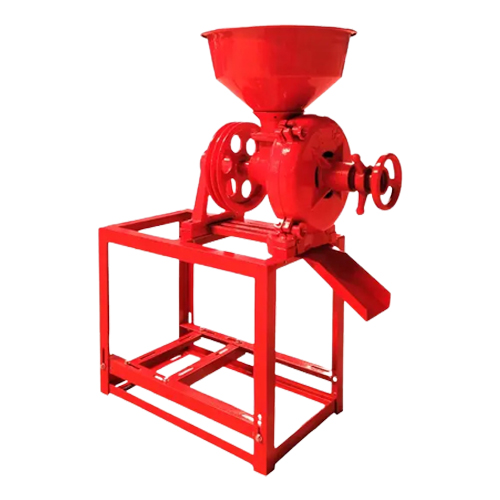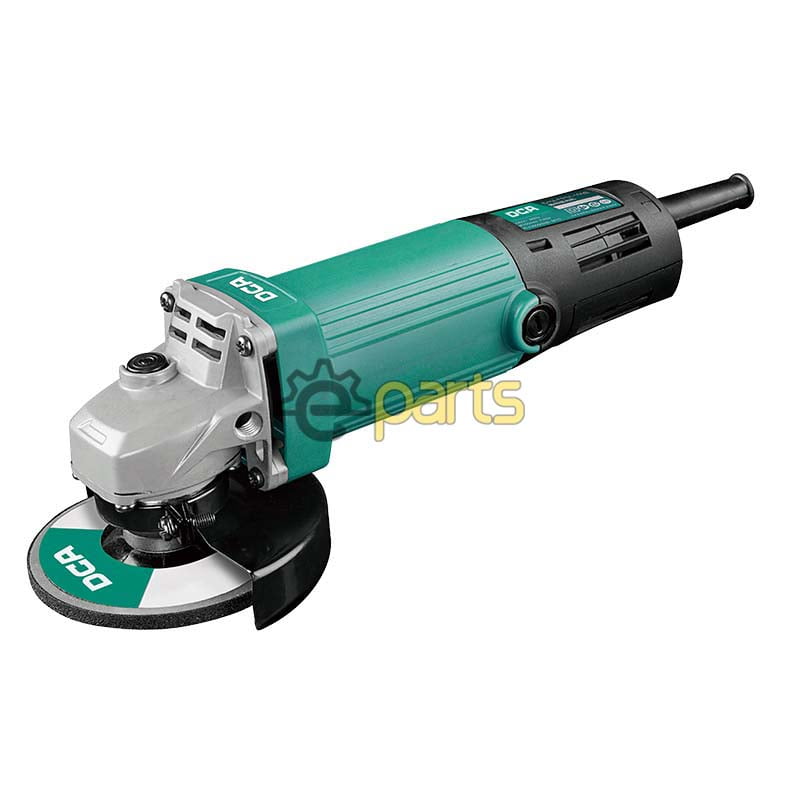Grinding Machine Price In Bangladesh
Have you ever wondered how a simple grinding machine could impact both the artisanal and industrial sectors of Bangladesh? With increasing demand for efficiency and quality, these machines have become essential in many industries. This rising importance naturally leads us to discuss their pricing, which has seen interesting trends in the last few years.
The cost of grinding machines in Bangladesh varies significantly depending on features and brand reputation. While historically these machines were considered a luxury for many businesses, competitive pricing strategies have made them more accessible. Interestingly, local manufacturers have contributed to reducing costs by around 20%, driving more inclusivity in the market.


The Growing Demand for Grinding Machines in Bangladesh
In Bangladesh, the demand for grinding machines has recently been on the rise. This surge can be attributed to the booming construction and industrial sectors. More companies are recognizing their efficiency in producing high-quality materials, leading to increased usage. Small enterprises are also adopting these machines to enhance productivity. These shifts highlight the growing significance of grinding machines across different facets of the economy.
An interesting aspect of this demand is the variety of industries benefiting from these machines. From food processing to cement production, the versatility is impressive. For example, grinding machines help in making fine flour for bakeries, according to the article, they are essential in producing smooth cement. This widespread application makes them indispensable tools in Bangladesh’s development.
Moreover, the evolving technology behind grinding machines has further fueled demand. Advanced features allow machines to perform tasks more rapidly and with greater precision. Users appreciate the cost savings associated with this improved efficiency. Not surprisingly, businesses seek to stay competitive with the help of these innovative machines. The popularity of these devices underscores their transformative impact.
Interestingly, local manufacturers have started contributing to the market by offering affordable options. They are able to provide machines at a lower cost, making them accessible to more businesses. Here is the post that discusses how local efforts are vital in meeting supply needs. This trend supports the country’s economic goals by reducing reliance on imports. It also represents an important step towards self-sufficiency in the technology sector.
How Industries are Benefiting from Grinding Machines
Industries in Bangladesh are reaping various benefits from grinding machines. These machines enhance production efficiency by grinding materials quickly and accurately. Reduced processing time means higher productivity and, ultimately, greater profits. Manufacturers rely on them for consistent quality, which is vital in maintaining customer trust. Therefore, investing in these machines is considered a smart business move.
Moreover, grinding machines offer versatility, making them suitable for different sectors. For instance, in the food industry, they help produce fine spices and flours. In the construction sector, they aid in creating smooth cement surfaces. This flexibility ensures that businesses across diverse fields can utilize them. Such adaptability is part of their appeal.
Another advantage is the cost savings associated with their use. By automating grinding processes, companies reduce labor costs and minimize human errors. This leads to significant long-term savings. Efficient machines also consume less energy, further decreasing operational expenses. Hence, many see them as a sustainable investment.
With the emergence of local manufacturers, acquiring these machines has become more affordable. Companies no longer need to import costly foreign equipment. Now, they can support domestic suppliers while benefitting from high-quality machines. This shift fosters local economic growth and encourages technological advancement. It represents a win-win situation for both industries and the local economy.
Types of Grinding Machines and Their Pricing
When exploring grinding machines, you’ll find several types that cater to different needs. The most common types include surface grinders, cylindrical grinders, and tool and cutter grinders. These variations serve distinct purposes, from sharpening tools to refining surfaces. Choosing the right type depends on the specific requirements of a project. Each machine type offers unique advantages that can enhance productivity in various sectors.
Surface grinders are ideal for achieving smooth finishes. They are widely used in the construction industry to prepare surfaces for painting or coating. Cylindrical grinders, on the other hand, excel in shaping and finishing cylindrical parts. They find their application in automotive and industrial manufacturing processes. This diversity ensures that industries have plenty of options when selecting a grinding machine.
Pricing for these machines varies significantly based on their features and capabilities. Simple models with basic functions might be more affordable. Complex machines equipped with advanced technology naturally cost more. The following table provides a general idea of the price range for different types:
| Machine Type | Price Range (BDT) |
|---|---|
| Surface Grinder | 80,000 – 200,000 |
| Cylindrical Grinder | 100,000 – 250,000 |
| Tool and Cutter Grinder | 150,000 – 300,000 |
Ultimately, investing in a grinding machine depends on the demands of the business. Industries need to balance quality and cost when making a purchase. By considering specific needs, they can select a machine that offers the best value. Thus, careful evaluation is crucial in making an informed decision. These considerations ensure that companies choose the right equipment for their operations.
Factors Influencing the Price of Grinding Machines in Bangladesh
Several key factors significantly impact the pricing of grinding machines in Bangladesh. One critical factor is the type and specifications of the machine. Machines with advanced features or capabilities often command higher prices. This is because they offer greater efficiency and precision, which can be crucial for specific industrial applications. As a result, buyers must consider their specific needs when assessing cost.
Another influencing factor is the brand and manufacturer of the machine. Renowned brands often charge more due to their reputation for quality and reliability. Customers are often willing to pay extra for peace of mind and assurance of durability. In contrast, newer or local brands might offer competitive pricing to attract buyers. This creates a diverse marketplace with options to suit various budgets.
Moreover, the cost of raw materials and import duties can affect machine pricing. Machines produced locally may benefit from lower material and labor costs. Meanwhile, imported machines can incur additional taxes and fees, leading to higher prices. These financial factors play an essential role in determining market prices. Understanding these elements aids in comprehending price fluctuations.
Technological advancements also play a role in pricing. Machines equipped with the latest technology can perform tasks more quickly and efficiently. However, these advancements often come at a higher cost, reflecting the value of increased productivity. Innovations continue to drive this industry forward, justifying the investment for many businesses. The technological edge is an attractive feature for companies aiming to stay ahead of the competition.
Finally, economic conditions in Bangladesh can influence price structures. Inflation, currency exchange rates, and economic policies affect manufacturer costs. These, in turn, impact the prices consumers see. Economic stability can foster a more predictable pricing environment. It is important for both consumers and producers to keep track of these economic indicators.
The Impact of Local Manufacturers on Grinding Machine Prices
Local manufacturers have significantly influenced the grinding machine market in Bangladesh. By producing machines locally, these manufacturers can reduce costs, which leads to more affordable prices for consumers. This affordability makes it easier for small to medium-sized businesses to access these essential tools. As a result, there’s increased competition among local producers, driving improvements in both price and quality. This competitive environment benefits the local economy by encouraging innovation and growth.
Another advantage of local manufacturing is the decrease in import dependency. Fewer imports mean lower prices as local machines avoid hefty import duties and taxes. This reduction in costs results in more savings for consumers and stimulates local industry growth at the same time. Additionally, manufacturing domestically supports the local workforce by creating jobs. This strengthens the economy and boosts societal development.
Moreover, local manufacturers can quickly adapt to the specific needs of Bangladeshi businesses. They can tailor products to align with local preferences or environmental conditions. As a result, they can provide machines that are more suitable for the local market compared to imported options. Local service and maintenance support add further convenience for buyers. This personal approach enhances customer satisfaction.
Investment in local manufacturing capabilities also promotes competitiveness. By focusing on quality improvements and technological advancements, domestic producers can challenge foreign competitors effectively. This drives product enhancements and keeps prices reasonable. Consumers benefit from better products while supporting their country’s economy. The progress seen in this sector showcases the benefits of fostering local talent and resources.
Local manufacturing does present challenges, such as ensuring access to advanced technologies. However, collaborations between local enterprises and international partners can overcome these hurdles. By sharing expertise and resources, these partnerships enable the production of high-quality machines domestically. Such collaborations further empower the local industry, creating a win-win scenario for all parties involved. This strategy strengthens Bangladesh’s position in the global market.

Frequently Asked Questions
Understanding grinding machines in Bangladesh helps both businesses and individuals make informed decisions. Here are some common questions about these machines to guide your purchasing journey.
1. What are the most common types of grinding machines used in industries?
Grinding machines come in several types, each serving a unique purpose in industries. The most common varieties include surface grinders, which create smooth finishes; cylindrical grinders, ideal for shaping cylindrical parts; and tool and cutter grinders, used to sharpen other tools. Each machine has specific functionalities that cater to different needs across sectors. By choosing the suitable type for your project, you can enhance production efficiency and accuracy.
Choosing the correct grinding machine involves considering the task and desired outcome. Surface grinders are typically seen in metalworking and construction, while cylindrical grinders often appear in automotive applications. Tool and cutter grinders are essential in sharpening and reconditioning tools, prolonging their useful life. Understanding each machine’s role can significantly impact productivity and quality in various industries.
2. How do grinding machines benefit small businesses in Bangladesh?
Grinding machines offer numerous advantages to small businesses, enabling them to boost production volumes and maintain quality standards. They provide efficiency in processing raw materials, allowing businesses to reduce labor costs and minimize human error. This technology thereby contributes to increased productivity and improved profit margins. For many small enterprises, these machines are transformative tools that enhance their competitive edge.
Furthermore, the affordability of locally manufactured machines makes them accessible to a wider range of businesses. With lower initial investment costs, small businesses can acquire the equipment they need to scale operations. Local machines also mean easier access to maintenance and support services. As a result, investing in a grinding machine can be a smart decision for small business owners looking to expand and improve their offerings.
3. Why is local manufacturing important for the grinding machine market?
Local manufacturing plays a crucial role in the grinding machine market by providing more affordable options. By reducing dependencies on imported machines, local manufacturers help drive down costs, making machines more accessible to a broader audience. This shift empowers more industries to embrace advanced manufacturing technology. Moreover, it strengthens the local economy by creating jobs and supporting domestic expertise.
Manufacturing domestically also offers other significant advantages, such as tailored solutions for regional needs. Local producers can customize machines to local work environments, ensuring optimal performance. This responsiveness adds value in a way that imported machines often cannot match. Therefore, local manufacturing is vital to fostering innovation and sustaining competitiveness in Bangladesh’s industry.
4. What factors should businesses consider when choosing a grinding machine?
When selecting a grinding machine, businesses should evaluate several critical factors, such as the specific task requirements and machine type. Assessing your production needs helps in identifying the features and specifications that will best suit your goals. Other important elements include the machine’s price, brand reputation, and any after-sales support or maintenance services offered. Weighing these factors ensures you’re investing in equipment that contributes to your success and efficiency.
Furthermore, it’s essential to consider the long-term benefits of the machine, like energy consumption and operational costs. Choosing a machine that aligns with your sustainability goals can save money over time. Additionally, look into training and ease of use, as machines that are user-friendly reduce training time for employees. Carefully analyzing these factors allows businesses to make an informed and strategic purchase decision.
5. Can technological advancements affect grinding machine pricing?
Technological advancements often significantly impact the pricing of grinding machines. Machines with cutting-edge technology tend to carry higher price tags, reflecting their enhanced capabilities and efficiency. New features such as automation and precision settings add value by increasing productivity. Investing in such technology can offer long-term savings and boost competitiveness. Sophisticated machines reduce waste and optimize the production process, leading to lower operational costs.
On the other hand, older models might become more affordable as newer versions enter the market. This price fluctuation offers opportunities for businesses with varied budget constraints. Those who do not require the latest features can benefit from the reduced prices of older machines still capable of performing the necessary tasks. Therefore, keeping an eye on technological trends is beneficial when evaluating potential investments in grinding machinery.
Conclusion
Grinding machines play an essential role in Bangladesh’s industrial landscape, facilitating efficiency and productivity across various sectors. The demand has driven advancements in technology and affordability, thanks to local manufacturing efforts. This evolving market supports both large enterprises and small businesses, fostering economic growth and innovation. As the industry continues to grow, there will be even more opportunities for businesses to harness these technological advancements.
By understanding factors like machine types, pricing, and local manufacturing’s impact, businesses can make informed decisions. Choosing the right grinding machine involves a strategic approach, considering both immediate and future needs. For many, these machines offer transformative possibilities that enhance competitiveness and success in their respective fields. Continued investments in technology will further empower the industrial sector, leading to sustainable growth and development.
